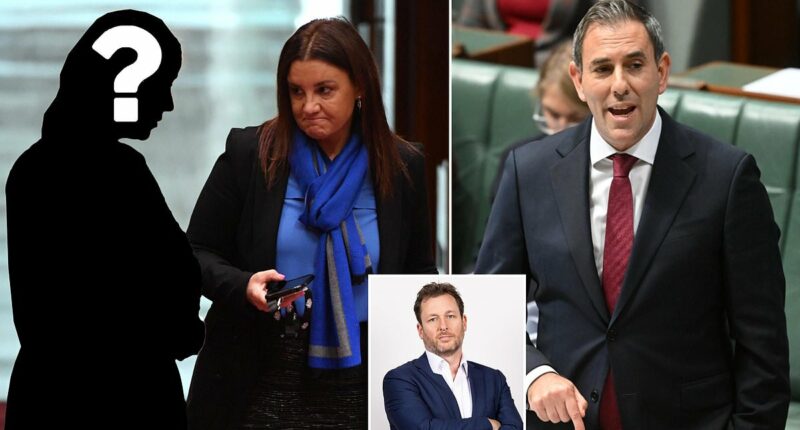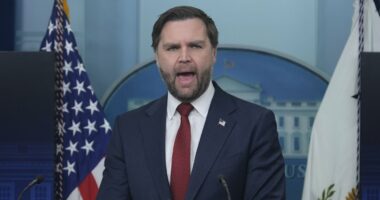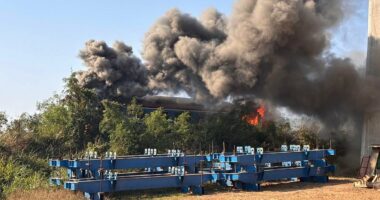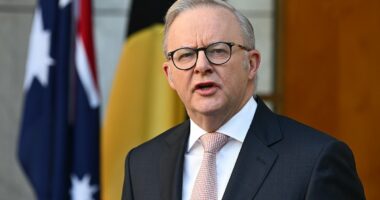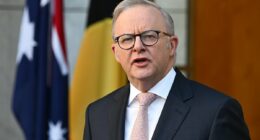Share this @internewscast.com
Jim Chalmers is bringing together an invite-only, three-day ‘Economic Reform Roundtable’ at Parliament House, starting tomorrow.
The plan is for the group to find ‘doable’ policies on productivity, resilience (whatever that means) and the budget.
The Prime Minister will endorse the event, the Treasurer will attempt to unite the attendees, and the meticulously selected guest list will nod approvingly at the appropriate times… only to begin differing once they are safely outside.
This entire exercise exudes an insiders’ clique. It’s Canberra conversing with itself and incorporating a few parliamentary pass-holders from beyond the capital to create the illusion of diversity when, in essence, it’s the same group discussing economic growth initiatives while the nation awaits truly significant action.
Currently, those ‘next steps’ appear as more piecemeal tax hikes (several have already been indicated) along with details from a Treasury memo that leaked last week.
The bigger list of grabs will only become clear with time.
Albo has mentioned he would prefer to present reforms emerging from these discussions during the next election cycle, rather than implementing them in the current term, thus allowing voters to voice their opinions.
But it also means a two to three year lag between this week’s event and anything resembling action, unless Albo breaks his promise of course.

A leaked Treasury memo has already given the game away about what to expect from Jim Chalmers’ economic roundtable
Who’s Who in the zoo – and the glaring omission
Treasury has identified a ‘core group of 23’ participants, with certain experts joining and leaving as needed. It’s the typical Canberra arrangement: prominent names and major organizations showcased to suggest a range of viewpoints.
Among those included are Danielle Wood (head of the Productivity Commission), Sue Lloyd-Hurwitz (leading the Housing Supply Council), and Kerry Schott, 80 years old, (chair of the Competition Review expert panel). Former Treasury secretary Ken Henry will also attend, alongside Gina Cass-Gottlieb (ACCC), Steven Kennedy (PM&C), and Jenny Wilkinson (Treasury). Additionally, Cath Bowtell from IFM is included.
Labor’s own network is, of course, well represented: Ben Wyatt (ex-WA Treasurer), Andrew Fraser (ex-Qld Treasurer, now at a super fund and a close mate of Chalmers) and Daniel Mookhey (NSW Treasurer) are all there. Union muscle is on hand too, with Sally McManus and Michele O’Neil from the ACTU in attendance.
Business shows up, but badly. The four peak body delegates: Bran Black (BCA), Andrew McKellar (ACCI), Innes Willox (Ai Group) and Matthew Addison (COSBOA) are all men. Thirty industry associations could have supplied senior women but they didn’t. If business wanted to look remotely modern, this was a lay-up. Instead they left the optics to chance. Chalmers sent the invites, but business chose not to insist on better representation, leaving it caught out as usual.
Actual CEOs will sit around the table too: Matt Comyn (CBA), Geraldine Slattery (BHP) and billionaire Scott Farquhar (formerly of Atlassian). Cassandra Goldie (Australian Council of Social Services) has been tasked with representing the other end of the spectrum, while Ted O’Brien will play his part for the Opposition, a reminder of just how irrelevant the Coalition looks after its election drubbing. Teal MP Allegra Spender sneaks into the in-crowd too. The Greens, however, despite holding the Senate balance of power, do not. That omission says plenty about a lack of interest in legislating whatever might come next.

No-one from the Greens is on the economic roundtable… despite the party holding the balance of power in the Senate. Above, Greens leader Larissa Waters speaks to independent Jacqui Lambie
Plenty of others will float in and out of the week’s proceedings, but only for long enough to pose for the program. They’ll be ushered back out once that photo-op is over, leaving the real discussions to the permanent insiders.
Guiding the conversation from the lectern are names meant to project seriousness: RBA Governor Michele Bullock on productivity, Danielle Wood again on reform priorities, Jenny Wilkinson on the fiscal squeeze, and Aruna Sathanapally from the Grattan Institute shaping the tax chat into something publishable.
What this line-up says (and what it won’t say out loud)
Pull back and the picture is obvious. The room is heavy on brands, light on doers. Plenty of peak-body gravitas, not enough unglamorous specialists who turn ministerial wish lists into law. This is Canberra at its most polished, the same voices, same language, same self-congratulations. It doesn’t make the event illegitimate, but it makes it incomplete, that’s for sure.
The running sheet looks neat enough: approvals, competition, skills, energy, tax and budget debates. Safe and tidy, but entirely forgettable. Productivity doesn’t live in communiqués. It lives in the plumbing: the draft clauses, the re-zoning maps, the market rules, the IT requirements.
That’s where this summit risks coming up short.
Tax reform without tax experts is mood music and a serious miss when the guest list was pulled together. Energy reform without representatives who do the doing is also a miss. Housing supply discussions without state planners risks becoming meaningless, and a lack of focus on what comes next in the migration space is a sign of political cowardice when the event was planned. And where are the childcare experts, given Labor put the issue at the centre of its election campaign?
Serious tax reform discussions must start at the state level, yet only the NSW Treasurer got a ticket to attend. When you stop to think about how hard federation reform is, not to mention the difficulties of bringing smaller states along for the ride, only including the treasurer of the nation’s biggest state is beyond stupid.
Stamp duty will keep strangling mobility, payroll tax will keep taxing jobs and the grown-up answers to fix that, such as land and consumption-based tax changes, will have to wait for another decade. Chalmers all but ruled out even looking at the GST.
Even the parts included on the agenda that sound tough risk achieving nothing. Industrial policy without guardrails becomes rent-seeking, especially when you look at the invite list. Besides, hollowed-out public service that’s been well and truly politicised can’t execute new ideas even if the ideas were there.
Hint of what’s going to come out of this summit
A leaked Treasury memo from last week gave the game away. This isn’t a forum, it’s a dress rehearsal for what’s already being planned.
The ‘options’ read like a pre-written script: freeze the National Construction Code, use AI to bulldoze environmental approvals, fast-track 30,000 housing projects under the EPBC Act.
Opposition Leader Sussan Ley called it ‘choreographed’ and she’s right. Announcements seem to all be lined up already and the summit hasn’t even started.
Chalmers insists it’s normal prep before an event like this, but that’s garbage. Albo swears tomorrow will start a genuine conversation, but anyone who’s been around Canberra knows leaks like the one last week tell you the script.
The only real test now? Whether anything unexpected survives the filter. Because unless the missing expertise is wired in, this summit will be remembered as just another insiders show and tell. An event heavy on headlines and light on delivery.
Please let me be wrong.
